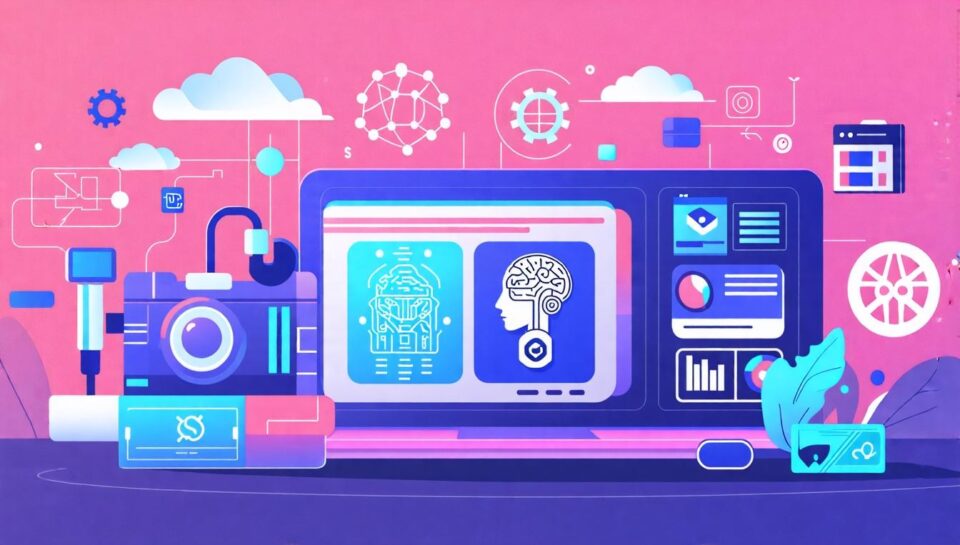
Artificial Intelligence: Understanding its Definition and Impact
Artificial intelligence (AI) is not just a futuristic concept; it has rapidly become a vital part of our contemporary world. From transforming business operations to enhancing personal experiences through various artificial intelligence apps, the implications of AI are profound. The meaning of artificial intelligence encompasses a range of technologies that simulate human cognition, making it essential for industries like healthcare and finance. As more people enroll in artificial intelligence courses, they gain insights into its definition and applications, preparing them for the rising demand in artificial intelligence jobs. Additionally, the portrayal of artificial intelligence in movies sparks curiosity and discussion about its ethical ramifications and future trajectory.
The realm of intelligent machines, often referred to as cognitive computing, is reshaping our society and industries in remarkable ways. This advanced technology leverages algorithms and data to mimic human decision-making processes, leading to innovative solutions across various sectors. As more individuals explore the intricacies of machine learning and deep learning through educational programs, they uncover the foundational principles that define this transformative field. The burgeoning interest in AI-related careers highlights the demand for professionals who can navigate the complexities of robotics and automation. Furthermore, the investment landscape is evolving, with many focusing on cognitive technology stocks as companies harness the power of intelligent systems to drive growth and efficiency.
Understanding the Definition of Artificial Intelligence
At its essence, **artificial intelligence** (AI) encompasses the development of computer systems that can perform tasks typically requiring human intelligence. This includes capabilities such as visual perception, speech recognition, decision-making, and language translation. Understanding the **artificial intelligence definition** is crucial, as it lays the foundation for grasping the complexities involved in building intelligent systems. As technology advances, the **artificial intelligence meaning** continues to evolve, highlighting its significance across multiple domains.
The definition of artificial intelligence is not static; it adapts as innovations emerge. For example, the rise of machine learning and natural language processing has broadened the scope of AI applications significantly. Understanding AI also involves recognizing its limitations and ethical considerations, particularly as it pertains to data privacy and decision-making biases. The meaning of artificial intelligence can thus be viewed through multiple lenses, including technical, ethical, and societal dimensions.
Frequently Asked Questions
What is the definition of artificial intelligence?
Artificial intelligence (AI) is defined as the simulation of human intelligence processes by machines, particularly computer systems. These processes include learning, reasoning, and self-correction, which contribute to the overall meaning of artificial intelligence in various applications.
What career opportunities are available in artificial intelligence?
The field of artificial intelligence offers a wide range of career opportunities, including roles like Data Scientist, Machine Learning Engineer, and AI Research Scientist. With the rapid growth of AI technology, the demand for skilled professionals in artificial intelligence jobs continues to increase.
How has artificial intelligence been portrayed in movies?
Artificial intelligence in movies, such as ‘Ex Machina’ and ‘Her’, often explores the ethical dilemmas and potential futures of AI integration in daily life. These films significantly influence public perception of artificial intelligence and highlight both its benefits and dangers.
| Key Point | Description |
|---|---|
| What is Artificial Intelligence? | AI refers to the simulation of human intelligence processes by machines, including learning, reasoning, and self-correction. |
| The Evolution of AI | AI has evolved from simple algorithms to complex neural networks and is now applied across various sectors like healthcare and finance. |
| AI in Movies | Films like ‘Ex Machina’ and ‘Her’ explore the ethical implications and potential future of AI, influencing public perception. |
| Courses on AI | Many institutions offer courses covering AI fundamentals, machine learning, deep learning, and ethics. |
| Current Applications of AI | AI is used in apps, healthcare, finance, and data management, enhancing efficiency and user experience. |
| Career Opportunities | There is a growing demand for AI professionals in roles such as data scientists, machine learning engineers, and AI ethicists. |
| Investing in AI Stocks | AI stocks represent a lucrative investment opportunity as companies leveraging AI technologies experience growth. |
Summary
Artificial intelligence is a transformative technology that is redefining the way we interact with the world around us. As AI continues to evolve and integrate into various sectors, its implications are vast and profound. From enhancing healthcare through predictive diagnostics to revolutionizing the finance sector with smart algorithms, the impact of artificial intelligence is unmistakable. Understanding AI not only opens doors to numerous career opportunities but also prepares individuals to navigate and invest in a future where AI plays an integral role. As we embrace this AI-driven era, the significance of learning and adapting becomes paramount, ensuring we harness the full potential of this exciting technology.

